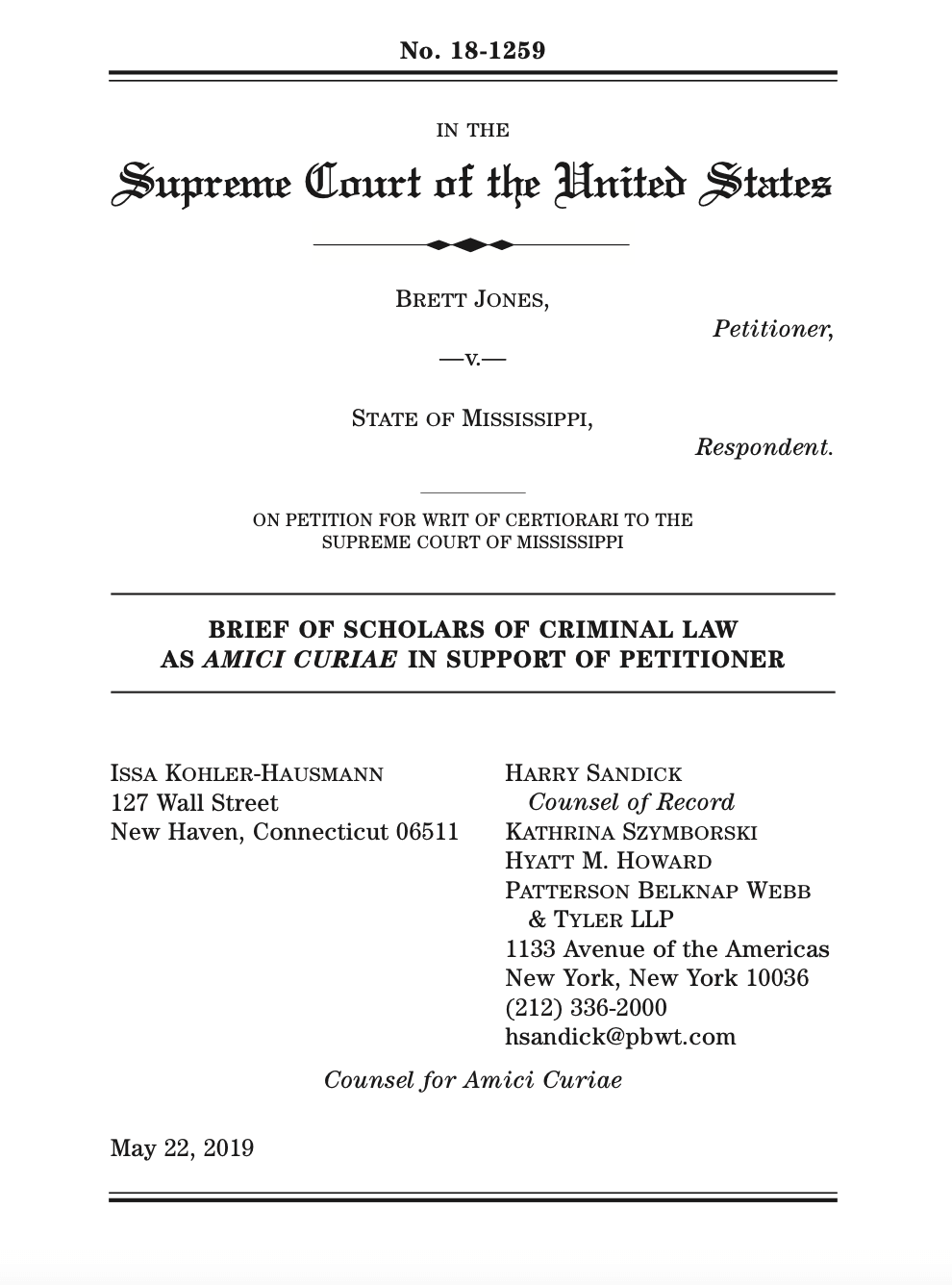
Summary of Argument
Separate from the federal Eighth Amendment issues at stake, this case presents two important issues of state constitutional law: Whether Article 25 of the Maryland Declaration of Rights prohibits sentencing a juvenile to life without parole absent a finding of permanent incorrigibility; and whether Article 25 categorically bars life-without-parole sentences for juveniles. The answer to both questions is yes. The Court should hold that Article 25 categorically forbids life without parole for juveniles. Barring that, the Court should hold under Article 25 that a sentencing judge must find a juvenile permanently incorrigible before imposing life without parole.
This brief is about why the Court should reach above the minimum required by the Eighth Amendment in interpreting Maryland’s own Declaration of Rights. Article 25 forbids “cruel or unusual” punishment imposed by courts—a broader rule than the Eighth Amendment’s prohibition of “cruel and unusual” punishment. The framers of Maryland’s Declaration of Rights could easily have copied the narrower rule against judicially-imposed “cruel and unusual” punishment from any number of well-known foundational documents, including the English Bill of Rights or the Virginia Declaration of Rights. But instead, Maryland went its own way by adopting a broader rule against “cruel or unusual punishment” imposed by courts in its 1776 Declaration of Rights. Even though the framers of the federal Eighth Amendment later adopted the Virginia formulation, Maryland carried forward the distinctive language of its own Declaration of Rights, which this State has maintained across four state constitutions and for nearly 250 years.
In fact, the Maryland Declaration of Rights contains two punishment clauses—a rule against “cruel and unusual” punishments imposed by the legislature (Article 16) and a rule against “cruel or unusual punishments” imposed through the exercise of judicial discretion (Article 25). The contrasting use of the conjunctive and disjunctive in different provisions of the same document regulating different branches of state government makes it all the more clear that “cruel or unusual” and “cruel and unusual” must have different meanings. Article 25’s more sweeping limitation on sentences meted out through a judge’s discretion clearly applies to this case because the sentencing court exercised discretion in sentencing Mr. Malvo to life without parole.
This Court itself “has acknowledged that there is some textual support for finding greater protection in the Maryland provisions” limiting harsh punishment based on the use of the disjunctive “cruel or unusual.” Carter v. State, 461 Md. 295, 308 n.6, 192 A.3d 695, 702 n.6 (2018) (citing Thomas v. State, 333 Md. 84, 103 n.5, 634 A.2d 1, 10 n.5 (1993)). Other high courts in states that prohibit “cruel or unusual” punishment have decided the issue squarely, finding, for example that “the set of punishments which are either ‘cruel’ or ‘unusual’ would seem necessarily broader than the set of punishments which are both ‘cruel’ and ‘unusual.’” People v. Bullock, 485 N.W.2d 866, 872 n.11 (Mich. 1992).
This Court should hold that Article 25’s ban on “cruel or unusual” punishment meted out through judicial discretion is broader than the Eighth Amendment’s rule against “cruel and unusual” punishment. In doing so, the Court should join with other state high courts. More and more state courts across the nation are providing protections for young people facing harsh sentences—ones grounded in their own constitutions, and not the Eighth Amendment. As this Court recently underscored:
State constitutions . . . are a font of individual liberties, their protections often extending beyond those required by the Supreme Court’s interpretation of federal law. The legal revolution which has brought federal law to the fore must not be allowed to inhibit the independent protective force of state law— for without it, the full realization of our liberties cannot be guaranteed.
Leidig v. Maryland, 475 Md. 181, 256 A.3d 870, 904 (2021) (quoting Justice William J. Brennan, Jr., State Constitutions and the Protection of Individual Rights, 90 Harv. L. Rev. 489, 491 (1977)).